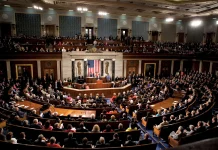On Monday, Nigeria’s national grid collapsed once more, resulting in a sharp decline in electricity output from 4,032.8 megawatts at 1pm to 43.5MW at 2pm on the same day.
Data on power generation acquired from the Transmission Company of Nigeria indicated that on Monday, at around 3 p.m., the system’s energy generation increased to 115.4 MW, and at approximately 4 p.m., it reached 240.9 MW.
As TCN worked from Monday afternoon into the evening to restore the national grid, it increased to 544.9MW at 5 p.m. and stayed on an upward trajectory.
Ndidi Mbah, the transmission company’s spokesperson, acknowledged the grid’s collapse in his statement on the events, but he quickly clarified that TCN experts had managed to restore the system.
“The grid experienced a collapse today (Monday). Presently, it (supply) has been restored except for the Jos axis, which will soon have supply within the hour. The collapse happened by 13.49pm this afternoon. It is now fully restored by 18.51pm,” she stated.
In September of this year, Nigeria’s electrical grid had many failures, and the system’s administrators came under fire from users for the grid’s constant failures.
The national electricity grid in Nigeria broke once more on September 20, 2023, causing severe blackouts across the nation. This was the third grid breakdown in about five days at that time.
According to the assessment, the grid’s electricity output plummeted from 3,594.60 megawatts at midnight on September 19, 2023, to 42.7MW by midday.
The Federal Government stated in September that an explosion and fire on the Kainji/Jebba 330kV line 2 were the causes of the statewide outage that was observed.
Power consumers, however, kicked against the never-ending excuses of the government as regards power generation and supply in Nigeria, despite privatising the generation and distribution arms of the sector since November 2013.
But the Nigerian Power Consumers Forum condemned the spate of disturbances on the national electricity grid and the fire incidents around power transmission infrastructure.
NPCF’s Convener, Michael Okoh, had raised the concern in a statement issued in Abuja.
“From independent assessment which started last year and up to this year, the forum was able to confirm the various initiatives TCN deployed to stabilise the grid including the use of Internet of Things and the deployment of the stop gap system as a placeholder for a smart grid system,” Okoh had stated.












